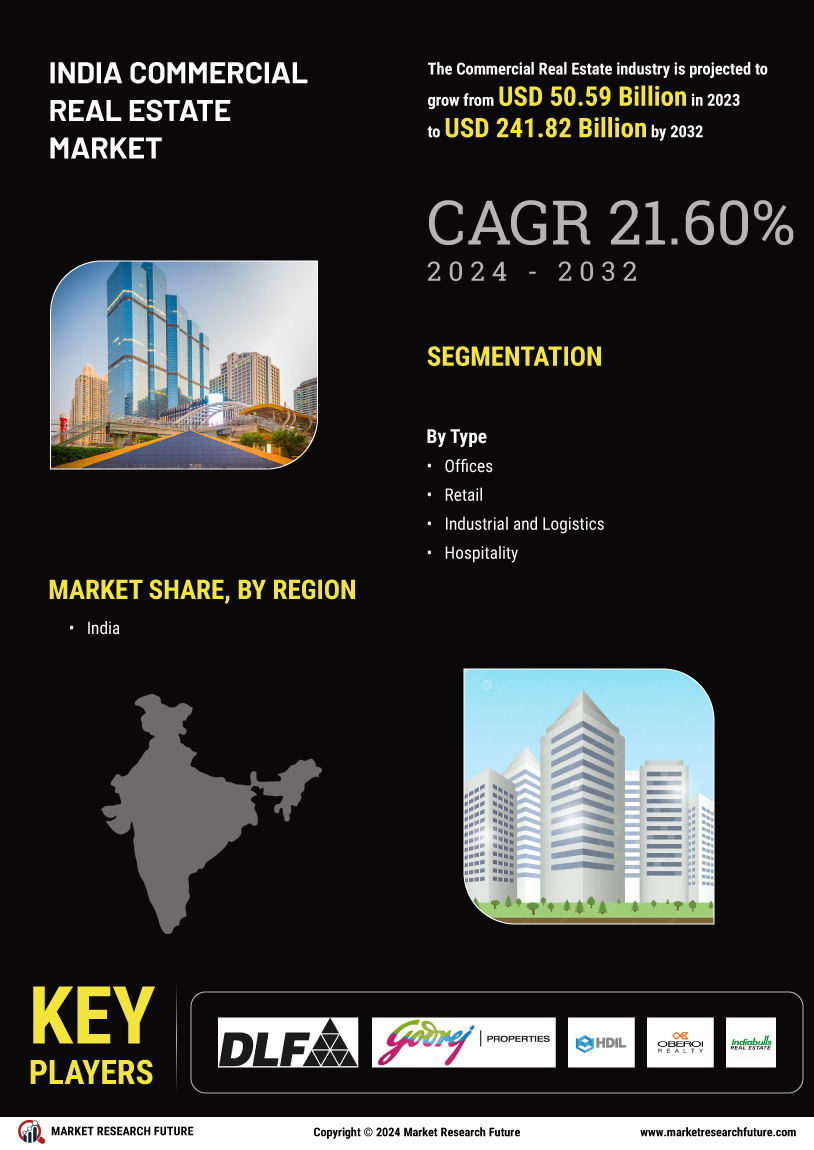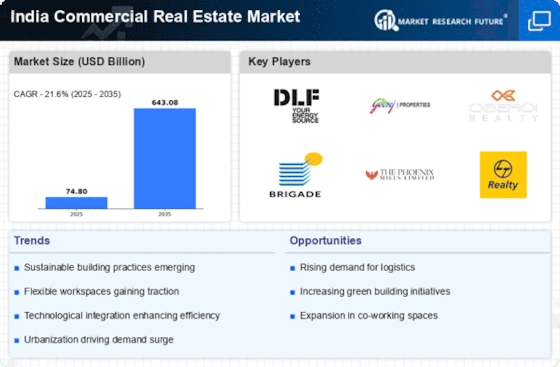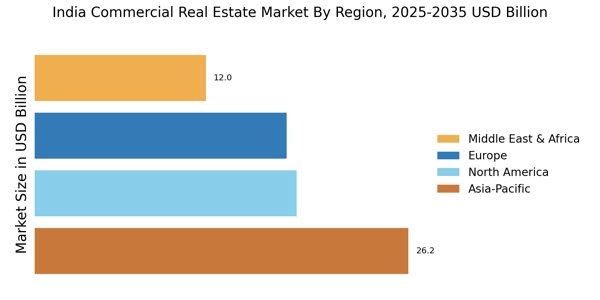Urbanization and Population Growth
The rapid urbanization in India is a pivotal driver for the India Commercial Real Estate Market. With an estimated urban population expected to reach 600 million by 2031, the demand for commercial spaces is likely to surge. This urban influx necessitates the development of office spaces, retail outlets, and mixed-use developments. Cities like Bengaluru, Mumbai, and Delhi are witnessing a significant rise in commercial real estate projects to accommodate this growing population. Furthermore, the increasing number of startups and multinational corporations establishing their presence in urban centers further fuels this demand. The India Commercial Real Estate Market appears poised for substantial growth as urbanization continues to reshape the landscape of commercial real estate.
E-commerce Growth and Logistics Demand
The exponential growth of e-commerce in India is reshaping the India Commercial Real Estate Market, particularly in the logistics and warehousing sectors. With online retail sales projected to reach USD 200 billion by 2026, the demand for logistics facilities is likely to escalate. This trend is prompting companies to seek modern warehouses and distribution centers to enhance their supply chain efficiency. Major cities are witnessing a surge in logistics parks and fulfillment centers, driven by the need for quick delivery and efficient inventory management. The India Commercial Real Estate Market is thus adapting to these changing dynamics, with a focus on developing infrastructure that supports the burgeoning e-commerce sector.
Foreign Direct Investment (FDI) Inflows
Foreign Direct Investment (FDI) is a significant driver of growth in the India Commercial Real Estate Market. The Indian government has liberalized FDI norms, allowing 100% foreign investment in various sectors, including real estate. This policy shift has attracted substantial foreign capital, with FDI inflows in the real estate sector reaching approximately USD 5 billion in recent years. The influx of foreign investment not only enhances the financial capacity of developers but also brings in global best practices and innovative technologies. As international players continue to enter the market, the India Commercial Real Estate Market is likely to experience increased competition and improved standards, fostering overall growth.
Government Initiatives and Policy Support
Government initiatives play a crucial role in shaping the India Commercial Real Estate Market. Policies such as the Real Estate (Regulation and Development) Act, 2016, and the introduction of the Goods and Services Tax (GST) have streamlined processes and enhanced transparency. Additionally, the government's focus on infrastructure development, including smart cities and transportation networks, is likely to bolster commercial real estate investments. The National Infrastructure Pipeline aims to invest over USD 1.4 trillion in infrastructure projects, which could significantly impact the commercial real estate sector. These supportive policies and initiatives indicate a favorable environment for investors and developers, potentially leading to increased activity in the India Commercial Real Estate Market.
Technological Advancements in Real Estate
Technological advancements are transforming the India Commercial Real Estate Market, influencing how properties are developed, managed, and marketed. The adoption of PropTech solutions, such as virtual reality for property tours and AI for property management, is becoming increasingly prevalent. These technologies enhance operational efficiency and improve customer experiences, making properties more attractive to potential tenants. Additionally, data analytics is being utilized to assess market trends and consumer preferences, allowing developers to make informed decisions. As technology continues to evolve, the India Commercial Real Estate Market is likely to see a shift towards more innovative and efficient practices, potentially leading to higher returns on investment.


















